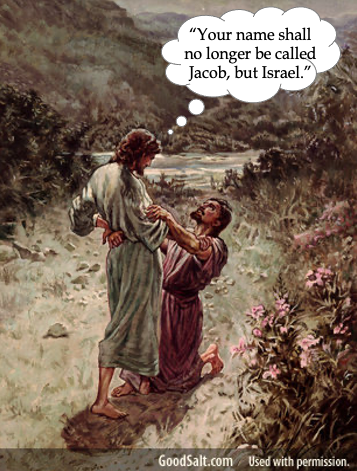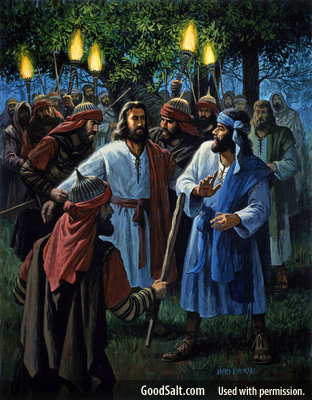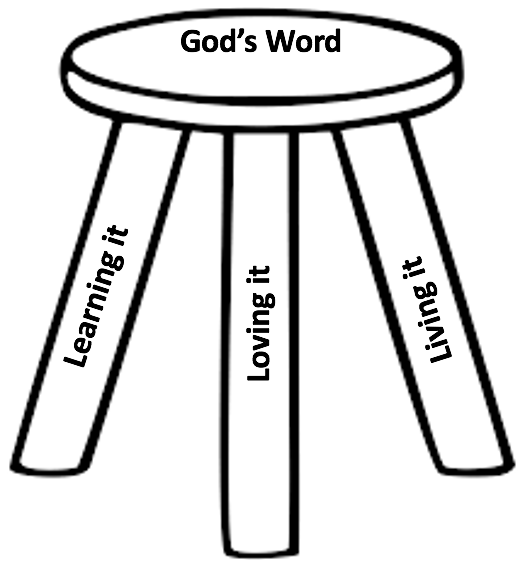“And He said, ‘Your name shall no longer be called Jacob, but Israel; for you have struggled with God and with men, and have prevailed.’ ” Genesis 32:28
We are learning from Jacob’s interaction with the Angel of the Lord how God wants to change us from the inside out. Thus far we have discovered that we can change when…
– God uses the process of a crisis (Genesis 32:24).
– God uses the process of commitment (Genesis 32:26).
– God uses the process of confession (Genesis 32:27)
Earlier Jacob had sought his brother Esau’s blessing from his earthly father, Isaac. When he entered his father’s presence, Isaac asked him, “Who are you, my son” (Genesis 27:18b)? Jacob deceived his father and said, “I am Esau your firstborn” (Genesis 27:19a).
Now Jacob is wrestling with God and God dislocates his hip (Genesis 32:25). And when God asks him for his name, he comes clean with his heavenly Father and says his name is “Jacob” (Genesis 32:27b). Up to this time, Jacob had been a deceiver and manipulator. At birth he grasped his twin brother Esau’s heel and was given the name “Jacob” which means “heel-catcher” (Genesis 25:26). Later Jacob deceived his father, Isaac, into giving him Esau’s blessing, and Jacob’s name came to mean “supplanter” – “one who takes the place of another by trickery.” His name took on the meaning of a “cheater, deceiver, schemer.” So when he told God his name, Jacob was being honest with God about his character flaws. He is saying to God, “I am a cheater and a schemer.” It is like Jacob is saying, “Lord, I don’t want to pretend any more. I want to present my true self to You. Here I am. Take me.”
God began changing Jacob as soon as he admitted who he was and started to cooperate with God’s plan. “So Jacob called the name of the place Peniel: ‘For I have seen God face to face, and my life is preserved.’ ” (Genesis 32:30). Jacob came face to face with God. Every one of us must eventually come face to face with God before God can change us. In this encounter with Jacob, God was saying, “I want you to relax. Just cooperate with Me and trust Me, and I will make the changes that you want made, and I will bless you.”
God didn’t say, “Jacob, try real hard and use all your willpower to grow and become the person I made you to be.” That doesn’t work. Willpower does not make permanent changes in our lives because it is attacking the outward circumstance, not the internal motivation that makes the permanent changes. God works on the heart. From this we learn the fourth way God changes us: GOD USES THE PROCESS OF COOPERATION (Genesis 32:28-31).
When Jacob began to cooperate, God started working, and the first thing God did was give Jacob a new identity. “And He said, ‘Your name shall no longer be called Jacob, but Israel; for you have struggled with God and with men, and have prevailed.’ ” (Genesis 32:28). After we have had a personal encounter with God we can no longer be the same. God changed Jacob from a cheater and schemer to an “Israel,” which means “God fights” 1 or “God’s fighter.” After all, Jacob fought with God and men, and prevailed; not by trickery, but by persistent faith. God knew Jacob’s potential; He saw beneath his self-sufficient, crafty exterior. God said, “That’s not the real you, Jacob. You are actually an Israel. You are My fighter.” God saw the fighter in Jacob, and the former cheater began to become the man whom the entire nation of Israel was named after.
The good news is when we believe in Jesus Christ for eternal life, God gives us a new identity. Beneath all those things we know about ourselves that we don’t like, God sees an Israel. He sees “His fighter.” He sees what we can become by His grace. He sees potential because He gave us God the Holy Spirit to empower us to live a victorious Christian life. “But if the Spirit of Him who raised Jesus from the dead dwells in you, He who raised Christ from the dead will also give life to your mortal bodies through His Spirit who dwells in you.” (Romans 8:11 NKJV). God the Holy Spirit in us gives us the desire and power to do what is right. “As the Spirit of the Lord works within us, we become more and more like Him.” (2 Corinthians 3:18 LB). We are now God’s fighter, “Yet in all these things we are more than conquerors through Him who loved us.” (Romans 8:37 NKJV). We now have the potential through Jesus Christ Who loved us to live above our circumstances instead of underneath them.
God always knows how to bring out the best in our lives. If we will let Him, He will use whatever is necessary to change our lives for the better. Do we want God’s blessing on our lives? Then we need to take the situation that is making us miserable right now and commit it to God. Say, “God, I am going to commit this problem to You. I am going to hold on to You until You turn this problem around for good.”
Then confess the faults we need to confess, and cooperate with God. Notice an important point about Jacob’s life: “25 Now when He saw that He did not prevail against him, He touched the socket of his hip; and the socket of Jacob’s hip was out of joint as He wrestled with him… 31 Just as he crossed over Penuel the sun rose on him, and he limped on his hip.” (Genesis 32:25, 31). While they had been wrestling, the angel dislocated Jacob’s hip, and as a result, Jacob walked with a limp for the rest of his life. That hip muscle is one of the most powerful muscles in your body. When God had to get Jacob’s attention, He touched him at a point of his strength.
When God needs to get our attention, He may touch us at a point of strength to remind us to rely on his power and not our own. When we start thinking, “This is what I am really good at,” God may have to touch that very thing to get our attention. God touched Jacob’s hip, and it became a reminder to Jacob for the rest of his life that he was no longer to rely on his own power but in the power of God, and in so doing he became a much stronger person.
One more insight we gain from this incident in Jacob’s life. Jacob often got himself into trouble because he was a cheater and deceiver, and he often reaped what he sowed. But every time he got himself into a mess he ran away from it – he did this with Esau and Laban, his father-in-law. So God said, “I know how to take care of that temptation- I will put a limp in his walk.” For the rest of his life, Jacob would have to stand and face his problems, not in his own strength, but in God’s strength.
This teaches us that God puts an obvious weakness in people whom He blesses. Often the weakness is some kind of physical problem. For example, the apostle Paul had his thorn in the flesh (2 Corinthians 12:7-10). The influential 19th century preacher, Charles Haddon Spurgeon, had a lifelong battle with depression. 2 Pastor Rick Warren has a rare neurological disease called spinal myoclonus that causes painful spasms and blurs his vision when he gets a jolt of adrenaline. 3 God used these weaknesses to keep these men dependent on Him and His grace.
What about you? What is the one thing you would most like to change about yourself? Do you want God to change it? He will, but in His own way and time, if you will let Him.
Prayer: Father God, forgive us for pretending to be someone we are not, for hiding behind layers and layers of lies and manipulation. All of us have created protective personalities to protect us from being hurt again. Even though You know this, You still love us and accept us. Because of Your amazing love for us, we come to You as we are. Help us to say good-bye to our protective personalities, and then trust You instead to protect us. Please help us to see ourselves through Your eyes in Christ. We are Your fighter or conqueror through Jesus Who loved us. Thank You for giving us God the Holy Spirit to empower us to live for You now above our circumstances instead of underneath them. In the mighty name of Jesus Christ we pray. Amen.
ENDNOTES:
1. Allen P. Ross, The Bible Knowledge Commentary Law, Editors John F. Walvoord and Roy B. Zuck, (David C Cook, 2018 Kindle Edition), pg. 148.
2. Retrieved on August 27, 2021 from Michael Reeves’ February 24, 2018 online article entitled, “Did You Know That Charles Spurgeon Struggled with Depression?” at www.crossway.org.
3. Retrieved on August 27, 2021 from Cris Kuo’s June 8, 2021 online Los Angeles Times article entitled, “Rick Warren to retire as lead pastor of Saddleback Church.”














